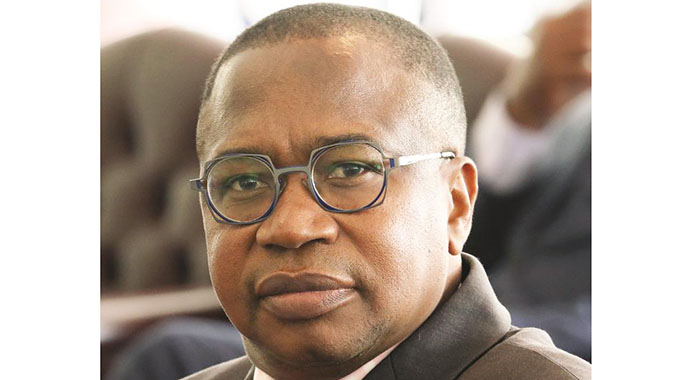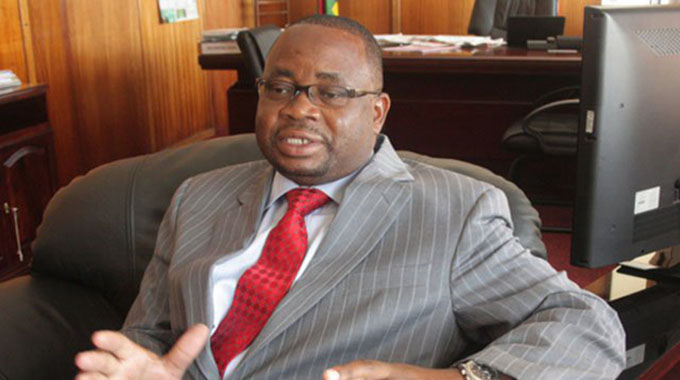Global experts to advise on parastatal reform

Africa Moyo Senior Business Reporter
Government has roped in global experts in the reform of State-owned enterprises, also known as parastatals, as it seeks to bring viability to the businesses.
The experts will include accountants and strategic advisors who will work together with a team of high-flying local experts, many of whom are leading international experts in finance, economics and business management.
This was revealed by Finance and Economic Development Minister Professor Mthuli Ncube in an editorial to The Herald published yesterday.
Government technocrats will also be part of the team.
Global experts come in to ensure optimal quality and full transparency.
Prof Ncube said the Government intends to reform parastatals to remove inefficiencies and bad corporate governance systems that have seen 99 percent of them incurring huge losses perennially and depending on Treasury for bailout.
He said: “. . . we will bring in recognised and qualified transactional advisers, with international experience to accompany the (parastatal reform) process.
“These advisors will include accountants and strategic advisers and will be complemented by Government technical committees to ensure the people of Zimbabwe get the best deal possible during the process.”
The country’s new economic blueprint, the Transitional Stabilisation Programme (TSP), is at the centre of reforms underway in the country, to stabilise the economy by targeting the “twin deficits” of fiscal and current account, which have become major sources of overall economic vulnerabilities including inflation, sharp rise in indebtedness, accumulation of arrears and foreign currency shortages.
The TSP sees parastatal reforms as critical to ensuring sustainable economic growth and improved service delivery.
Prof Ncube said at the core of the restructuring initiative is Government strategy on dealing with “under-performing parastatals”.
The Finance Minister believes once parastatals have been reformed, their revenues will rise not only from their sale, but also the increased tax revenues from the newly-profitable ventures in the long run.
At formation, State enterprises were expected to play a crucial role in providing infrastructure and other key services such as water, electricity, telecommunications, transportation, health and education but have become anachronistic and are now perpetual loss makers.
In 2016, 38 out of 93 audited SOEs incurred a combined $270 million loss because of dislocated corporate governance practices and ineffective control mechanisms.
Government has lined up 41 parastatals for reforms ranging from liquidation, full privatisation, and transformation to regulator, merging and demerging, as well as departmentalisation into existing ministries, depending on how strategic the parastatals are and their respective performances.
This will ensure that they are fully accountable, transparent, efficient, effective, and viable, complementing Government efforts in promoting economic growth and improved service delivery to the general public.
Government has previously indicated that some parastatals will be listed on the Zimbabwe Stock Exchange.
Other firms would be commercialised, merged while four will be guillotined and 13 are set for privatisation while 12 are primed for ZSE listing.
The restructuring exercise is part of Government efforts to achieve ‘Vision 2030’, whereby the country would become an upper middle income economy with a per capita gross domestic product (GDP) of $3 500, and decent jobs for citizens.
Institutions lined-up for privatisation include the Infrastructure Development Bank of Zimbabwe (IDBZ), Zupco, Agribank and some subsidiaries of the Industrial Development Corporation (IDC).
Firms scheduled for ZSE listing are Petrotrade, Willowvale Motor Industries, Chemplex Corporation and Deven Engineering.
Thirteen firms; the Postal and Telecommunications Regulatory Authority of Zimbabwe (Potraz) and the Broadcasting Authority of Zimbabwe (BAZ); Powertel, ZARNet and Africom; and the Boxing and Wrestling Boards, are earmarked for mergers.
The Competition and Tariff Commission (CTC) is set to merge with the National Competitiveness Commission (NCC), while the Zimbabwe Investment Authority (ZIA), Special Economic Zones Authority (SEZA) and the Joint Ventures Unit (JVU), will also be bundled together.
ZimTrade, the country’s premier trade promotion body, which was expected to be merged with ZIA, JVU and SEZA, has survived due to “changed circumstances”.
Government wants the National Glass Industries, Zimglass, Kingstons Limited and tractor firm, Motira, to be liquidated, while New Ziana, the National Indigenisation and Economic Empowerment Board (NIEEB), Board of Censors and the Lotteries and Gaming Board, would all be adopted by line ministries.
The Zimbabwe Mining Development Corporation (ZMDC)’s 17 subsidiaries; the Grain Marketing Board (GMB) and the Civil Aviation Authority of Zimbabwe (CAAZ) will be unbundled to separate their regulatory and commercial functions








Comments